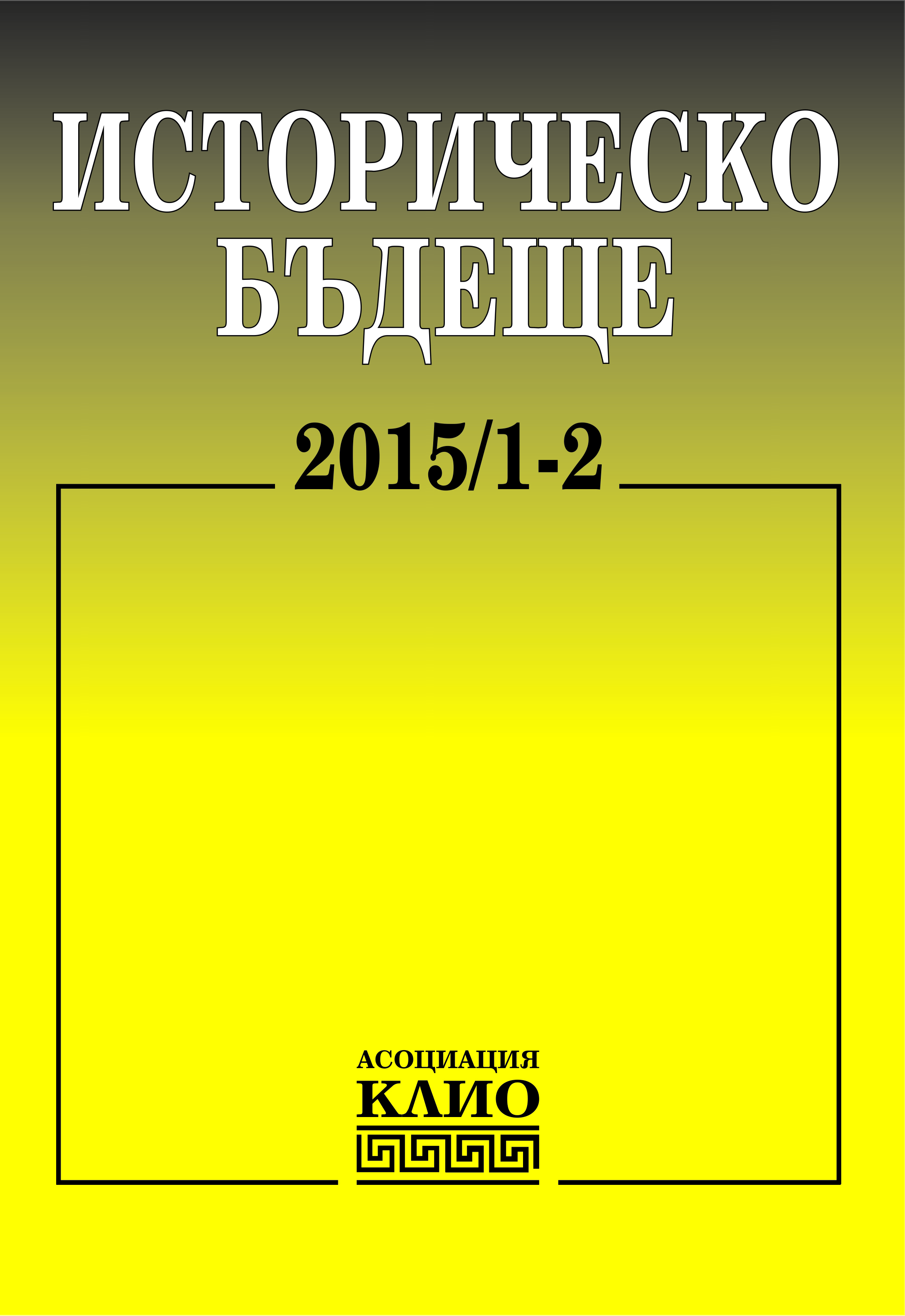
Българският комунизъм. Дебати и интерпретации
A presentation of “The Bulgarian communism. Debates and interpretations” – research papers collection, edited by Mihail Gruev and Diana Mishkova
More...We kindly inform you that, as long as the subject affiliation of our 300.000+ articles is in progress, you might get unsufficient or no results on your third level or second level search. In this case, please broaden your search criteria.

A presentation of “The Bulgarian communism. Debates and interpretations” – research papers collection, edited by Mihail Gruev and Diana Mishkova
More...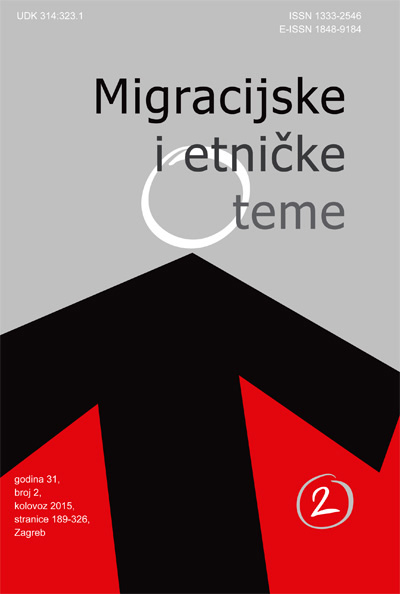
In the post-war socialist Yugoslavia political and/or economic situation has become unacceptable for part of the population. Since legal emigration from Croatia was not allowed, the number of illegal immigrants increased since the end of World War II. The article deals with this group of migrants using the comparative analysis of original archival materials and available literature in the period from 1945 to 1961 when the state began to gradually open the border. Mostly young people, under 25 years of age, immigrated illegally, mainly for economic reasons, and this was associated with a tradition of emigration, especially in the coastal region. In addition to the poor economic situation, people also emigrated for political reasons, then for adventure, to avoid serving in the Yugoslav People’s Army or to escape from the law for committing criminal offenses. They were fleeing by land or by sea, which was much more successful. Usually the first destinations of the immigrants were Italy, Austria and Germany, from where the majority of them moved to overseas countries. Most people fled the districts of Rijeka, Pula, Zagreb, Zadar, Šibenik and Split that existed at that time so that 74% of all illegal immigrants came from them. The runaways were mostly workers, followed by farmers, vocational school students, public servants, pupils and students, sailors and craftsmen. According to gender, there were many more men than women among the runaways, most of whom were unmarried. The authorities were trying to prevent the escape abroad by methods of controlling the border and prison sentences, but also by the attempts to ensure better living conditions in the affected areas. As these measures had not yielded the desired results, but also due to the beginning of the economic crisis and the appearance of unemployment, the authorities liberalized emigration procedures and opened the borders to immigrants which resulted in a new wave of economic emigration.
More...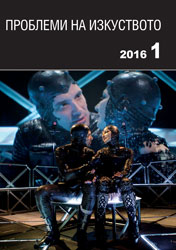
The article deals with the communist regime in the light of the state of the special closeness of all objects situated within it–open from outside and closed from inside–which closeness was initially generated by the nature of communism coming into existence. This special closeness resulted also in the specific manner of censoring under communism, named in this particular case ‘banning-approving’. Both Stanislavski’s method in its later imposed form and what has been known to be Socialist Realism are treated in this context. The most essential characteristic of the communist regime is exposed here in its ‘shoulding’. If in reality there was a modal clash between ‘should’, ‘is’, and ‘may’, what remained in art (of Socialist Realism) was just ‘should’ or ‘should not’. The shoulding gave those, who ‘shoulded’ the slip and that was why it was beyond reforming. Communism was an exclusive shoulding, which, due to its exclusiveness, became unableness.
More...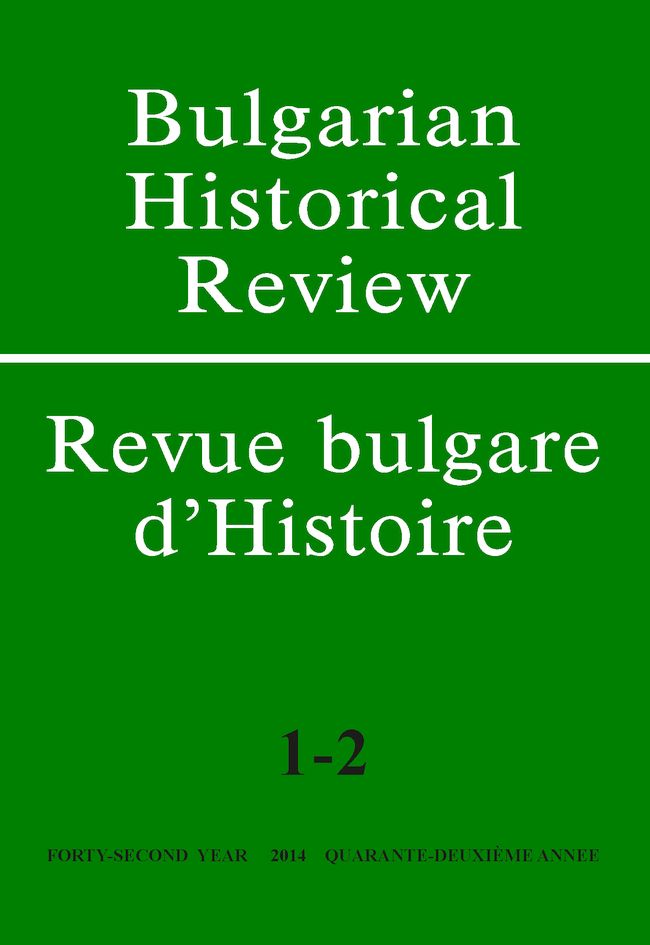
Based on newly discovered archival documents, the paper reveals the biography of Gregory Chochev who was a graduate of the Engineering School at His Majesty’s Navy in Varna and prominent communist functionary. It was found that after his emigration to the USSR in 1923, Chochev accepted family name Bilyarov, became an intelligence officer from the Soviet intelligence personnel and that he was repressed in 1938. The data records are published for the first time.
More...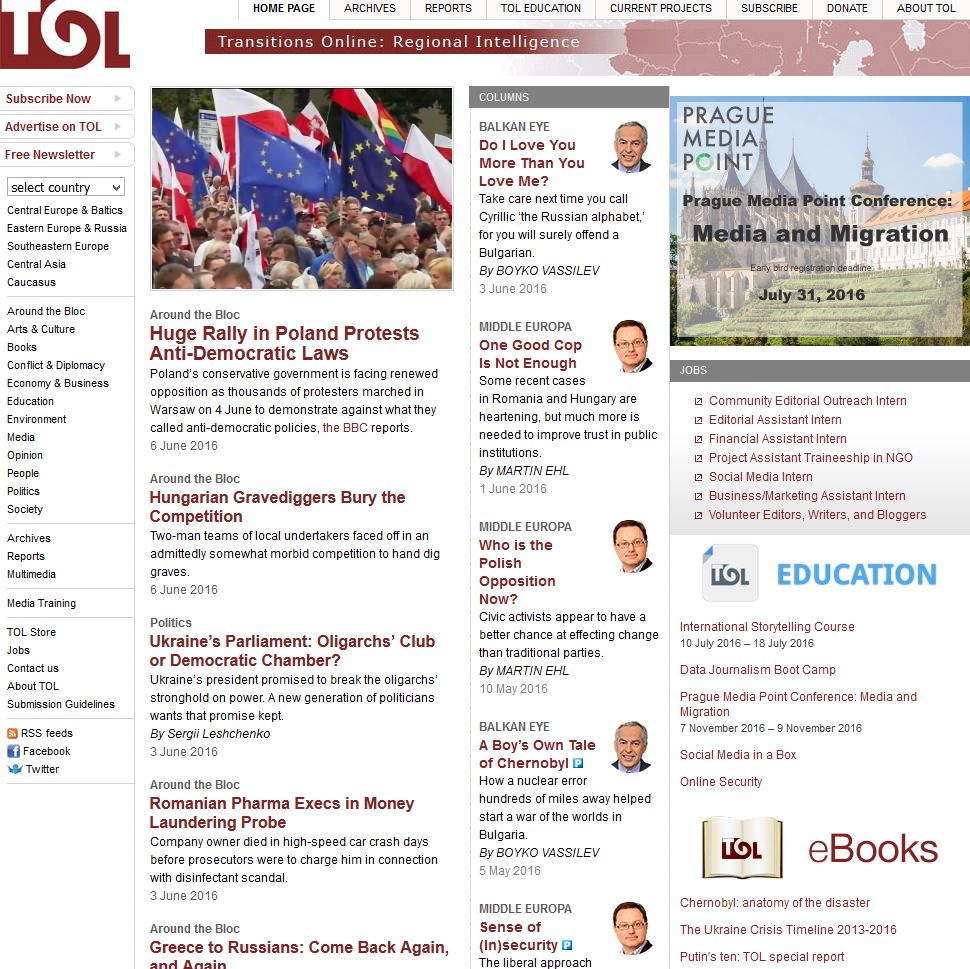
Investigation into hundreds of civilian deaths during uprising was declared classified last year before any trials began.
More...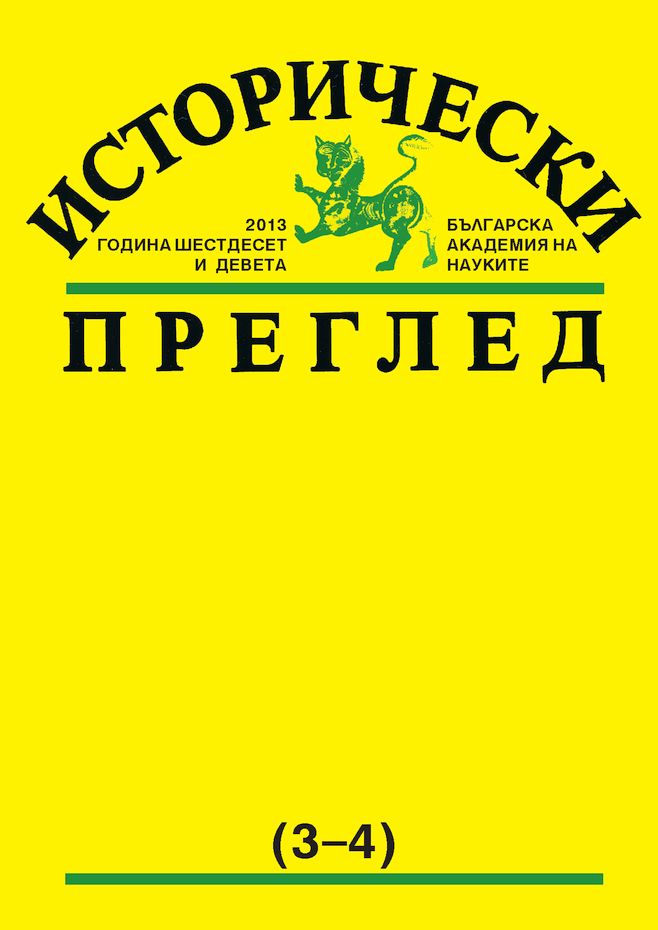
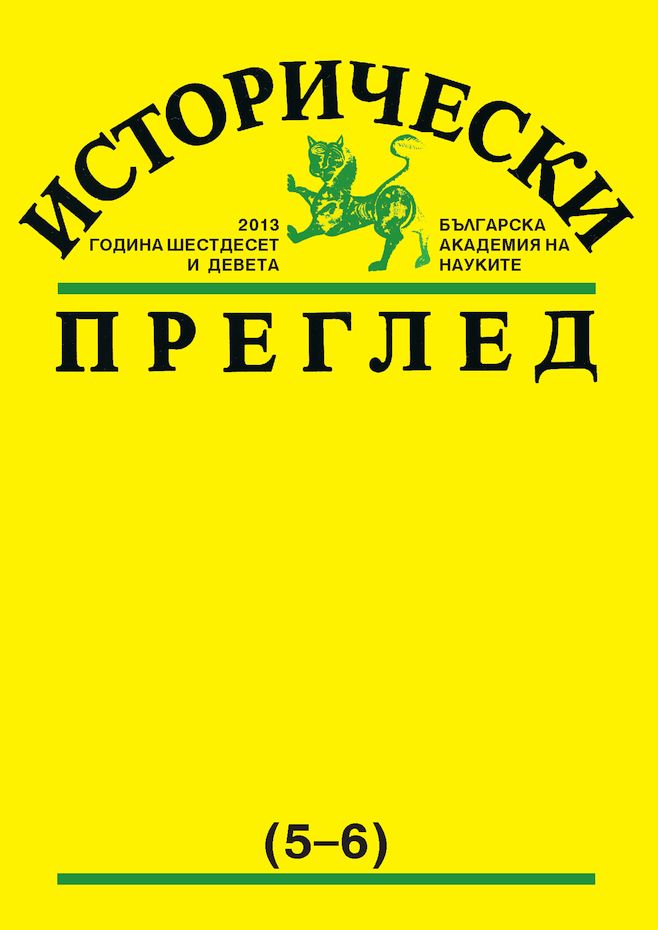
The article traces part of the discussions in Western studies about the meaning of the terms “Americanization” and “Sovietization”. The accents are placed on the impact of the promoted “American values” in Eastern Europe, especially in the USSR. More details are revealed about the mechanisms of influence used by the US Missions in Bulgaria after 1945 such as providing free access to the library of the political representation of the United States; donation of books and movies to various departments of the Sofia University, community centers and even Fatherland Front organizations. By overcoming the crisis in diplomatic relations of February 1950, despite ideological restrictions educational exchanges with the exchange of students, graduate students, and lecturers were restored after 1959. Pro-Western propaganda was also carried out through the activity of Radio “Voice of America”, Radio“Free Europe”, and BBC. The grueling confrontation between East and West gradually provoked ideas for “detente” that removed barriers between the two poles, but also raised requirements for adjustments in the behavior of the superpowers.
More...
България през втората половина на 40-те години на ХХ век
The second half of the 1940s is a crucial transition period in establishing totalitarian control of society. The decor of pluralism and parliamentarism brought specific color in the life of Bulgarians in the first years after September 9, 1944. The Communist Party in Bulgaria,aided by the entry of the Red Army in Bulgaria and the arrangements between the members of the anti-Hitler coalition, actually became ruling political force, but did not immediately establish a dictatorship of the proletariat in the form of Soviet rule. The destruction of the old authority structures was followed by a period of existence of a parallel unregulated power at all levels. The orchestrated political pluralism did not provide for any serious political role for the coalition partners of BRP (k), whose political platforms detached from the historical context, were quite harmless. A side effect in the movement towards a totalitarian society was the emergence of opposition, which briefly stirred Bulgarian political space and created the illusion of political pluralism in the country. The regime defined itself as a “people’s democracy”, but behind the propaganda thesis about the authority practice shows violation of pluralism, constant interference in the internal life of the other parties, strict regulation of all components of public and political life, criminalization of dissent, including the whole society into state organizations working under the ideological and political leadership of the Communist Party. The affirmation of the communist regime was accompanied by the formation of party-bureaucratic class which acquired the status, powers and privileges, access to which remained limited for members of other parties. Corrupting party cadres, sensitive to domestic benefits, began in the first months after September 9 and gradually became a dominant practice that turned into hallmark of the regime and existed until the end of the 1980s.
More...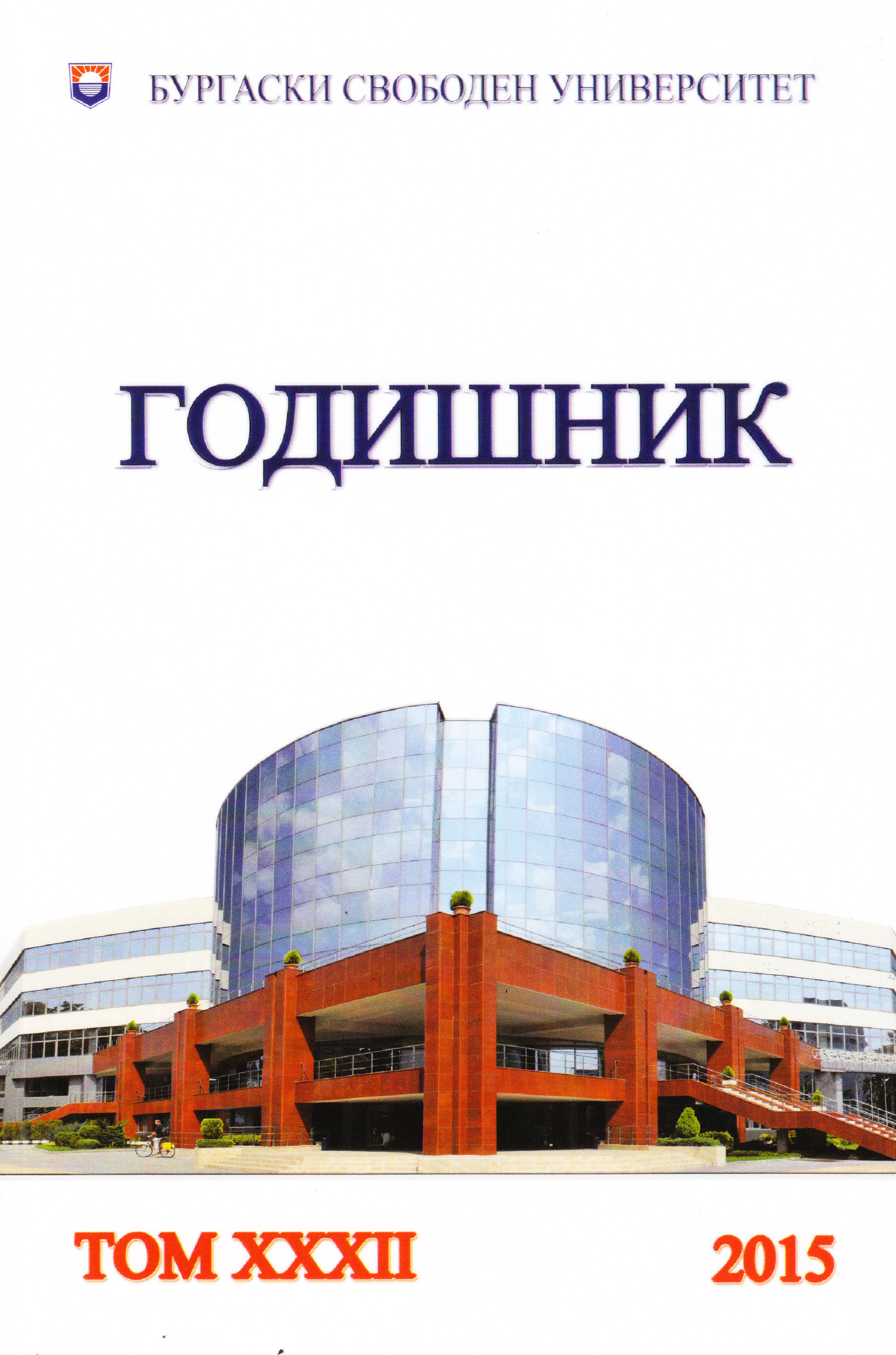
The proposed text interprets the incriminated from totalitarianism book of Panait Istrati „Confessions of a defeated” and his political reorientation from left to right. It shows his deep disappointment from Stalinist Russia, too.
More...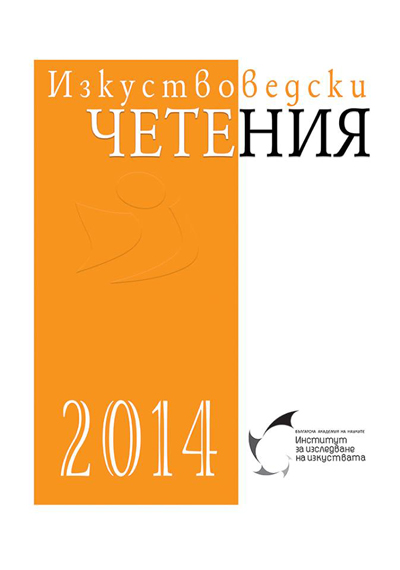
The text deals with key compositions in mural ensembles at the Cathedrals of The Nativity of the Most Holy Mother of God (Veliko Tyrnovo) and of The Dormition of the Most Holy Mother of God (Plovdiv) in the light of the developments related to regaining the Patriarchal dignity of the Bulgarian Orthodox Church in the mid-twentieth century. The decade following the World War Two was a time, when Bulgaria’s political system was subject to the Soviet totalitarian model. With regard to the Church, it meant pursuing a restrictive policy. On the other hand, however, the authorities spared no efforts to restore the Bulgarian Patriarchate, an issue of both domestic and foreign policy dimensions to it. The murals of both churches were made in 1950–1952 by teams led by this country’s most eminent Bulgarian historical painters, Nikola Kozhuharov and Dimiter Gudjenov. The representational programme was consistent with the political conjuncture. It was implemented in the vein of European academicism, the conservatism of which was close to the aesthetical concept of the method of Socialist Realism. Such plots and scenes were accentuated that could be interpreted not from the vantage point of faith alone, but also in the light of the dominant ideology. These pictorial ensembles would more often than not compromise the principles defining the nature of the Orthodox monumental and decorative church painting.
More...
The 1980s are quite interesting to researchers of contemporary architecture. That decade was the last under Socialism in Bulgaria, under the so-called ‘mature Socialism’, exhibiting a number of emblematic, large-scale and unique architectural works, some of which are commensurate with the world achievements. Despite of the state-of-the-art devices and the different exteriors, the official design of the governmental buildings is close in terms of its inculcations to that of the governmental edifices of the era of ‘Socialist Realism’ (1949–1956). The period of dogmatic appliance of ‘Socialist Realism’ in architecture was long gone back then, but in the Communist Party’s programmes and architectural literature it was still existing as a guiding architectural method. The representative governmental edifices of the 1980s evince typical features of a totalitarian architecture. During the decade under consideration, unique public buildings were also erected in Bulgaria, which were in tune with the world trends. The core principles of post-modernism in a number of cases were successfully applied along with those of modernism.
More...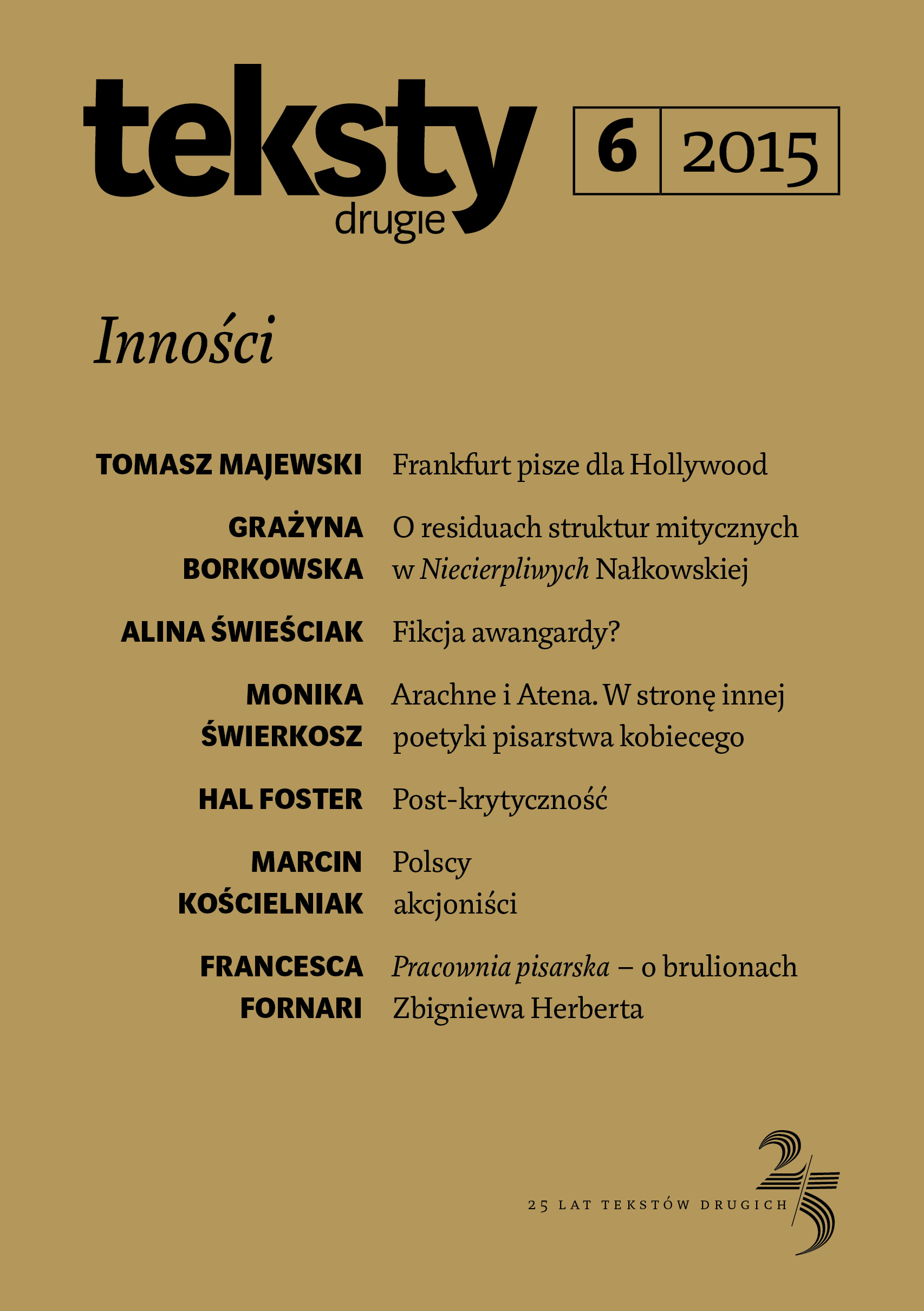
This article offers a structural description and interpretation of one motif in Józef Mackiewicz’s publicistic and creative prose. Duha in Polish refers to an arched beam in horse carriages in Podlachia, a historical region in the eastern part of Poland. This object carries many meanings that point to key themes in Mackiewicz’s work. First, the etymology of duha signals the writer’s rootedness in a community and language with strong east-Slavic influences. Second, duha functions as a metonymy for the Grand Duchy of Lithuania, signalling the writer’s territorial identity and pointing to his central beliefs, such as the ‘national idea’ and the patriotism of the landscape. Third, it can also be seen as a figure of his ecological position, introducing important semantic fields such as the road and movement. Fourth, it contributes to creating an important metaphor in Mackiewicz’s work, namely that of a confrontation between the eastern borderlands of the Polish Republic and communism.
More...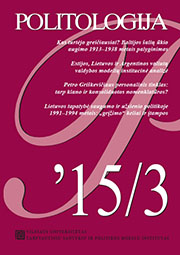
The notion of a clan of the first secretary in the soviet Lithuania or, in contrast, speaking about the consolidated titular nomenklatura enables to penetrate deeply into the governing of a soviet republic. The key questions here are: what kind of networks? Could the sort of networks and trust help us explain political dynamics in the soviet Lithuania and reasons why exactly Soviet Lithuanian Communist party became the first one in the Soviet Union that break with CPSU in 1989? What kind of circumstances and political context made possible the horizontal links among nomenklatura members and made nomenklatura likely to be a more consolidated network than the personal clan of the first secretary in such a centralized soviet system? Seeking to draw a difference between the clan and the consolidated titular nomenklatura, useful is the concept of krugavaya poruka presenting the Lithuanian nomenklatura as a cycle of functionaries bounded with interpersonal ties and collective responsibility against Moscow to drain out the political forms of nationalism in society. This article focuses on the personal network of Petras Griškevičius, the first secretary of the Communist party of Lithuania (1974–1987), revealing the importance of his networking in controlling the soviet Lithuanian nomenklatura. Griškevičius’ leadership network consisted of professionals and technocrats (functional nomenklatura), on the one hand, and the functionaries loyal to Griškevičius personally (Griškevičius’ personal clan) on the other. Tensions between members of functional nomenklatura and representatives of his personal clan appeared in many sectors of political, economic and social life of the republic. The article investigates cases of intelligentsia and technocracy in order to show how Griškevičius had used the competition between the functional nomenklatura and members of his personal clan aiming to gain more power. While the first secretary succeed in keeping balance among nomenklatura members, his power was limited by political circumstances. There were at least three factors that made possible the distinguished situation in the soviet Lithuania: 1) high expression of nationalism in society, 2) low status of the first secretary of the republic’s Communist party, 3) the role of the second secretary of the Communist party sent by Moscow into republic’s leadership. The obligation against Moscow to drain out political forms of nationalism in the republic led to functionalism in its nomenklatura leadership. Threat and political responsibility for the expression of nationalism demanded functional skills from party and soviet managers able to deal with political, social, and economic problems in the republic. For this reason, Griškevičius could not behave in the nepotism way by recruiting only trusted and personally loyal to him functionaries into leadership; he needed professionals. Secondly, in contrast to the “masters” in other republics, the first secretary of the soviet Lithuania had a comparatively low status in all-Union institutions. Both the first and second secretaries were only a member and a candidate member of the Central Committee of the CPSU. This low status of the first secretary in all-Union bureaucracy ranking made an impact on the behavior of the local nomenklatura, because it got a room for the personal play between the first and the second secretaries.
More...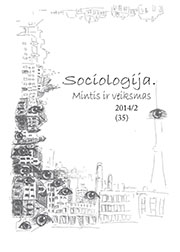
The article examines the concept of the political, and it’s relationship to the Late Soviet Socialism, adressed in the Sovietology oeuvre of Proffesor Alexei Yurchak. The question is raised whether the claim about inner paradoxes of the late Soviet system as a single discursive formation can be substantiated without addressing the probability of more fundamental discursive divisions, splits and multiplicities structuring life of the post-Stalinist epoch. The critical analysis of such concepts as „authoritative discourse“ and discursive „performative shift“ reveals contradictions of author‘s conceptual attempt to explain the legitimacy of the late Soviet system, as well as elucidates why the issue of the Soviet as the political remains suspended in the analytical shema of Yurchak.
More...
This article is aimed at revealing structural characteristics of blat networks during late soviet period in Lithuanian society. Blat is understood as a form of informal exchange particular for Soviet society. It was oriented at satisfaction of needs of personal consumption and it reorganized state system of distribution of material resources. The article starts from brief review of institutional conditions that facilitated formation and spread of blat exchange and defines consequences of blat for functioning of Soviet system. The article goes on presenting results of the data analysis of representative survey of Lithuanian population conducted in 2014. It is concluded that during Late Soviet period blat networks in Lithuanian society mainly consisted of strong ties, however, material well-being of individuals was associated with their abilities to use not only strong, but also weak ties. Data analysis also reveal that blat practices were frequently misrecognized as such by those who used them.
More...
Communist Party of Czechoslovakia after ascent to power in February 1948 enacted radical changes in all spheres of political, economic and social life. Among these changes, the school system was an important area, because it provided conditions which were significant for existence of the regime. It was the education and upbringing of young generation in line with ideology of CPC, that is, with an ideology of the Marxism-Leninism. After February 1948 the management of all schools, including universities, was in hands of the Communist Party which resulted in implementation of communist ideology into education. It was at universities where the future members of intelligentsia were receiving the highest degree of humanistic or technical education. Because the Communist Party did not trust intelligentsia educated before communist take-over and who were perceived as “class enemy”, they emphasized the need to educate “their own intelligentsia” which would come from working or farm labourer class. This thesis was implemented in practice in line with so called class principle, that is, universities were accepting predominantly student from working families. According to wishes of Communist Party the “class” composition of university students had to be the same as “class” composition of the whole society. Academic environment was exposed to communist propaganda and agitation. At all universities in Czechoslovak Republic were established organizations of the Communist Party, which participated on management of universities and implemented orders of central communist authorities. They were helped also by Czechoslovak Union of Youth and Revolutionary Unions, which were completely controlled by the Communist Party. The policy of Communist Party in relation to the university education was formulated in Law in Regard to Universities, adopted by the National Assembly on May 18 1950. The Communist Party was focused primarily on limitation of autonomy of universities and University self-government institutions ceased to exist. The property of universities was transferred to state. The management of universities was carried by the Ministry of Schools, sciences and arts. The church faculties were excluded from authority of the Ministry of Schools. The primary management and control over church faculties went Ministry of the State Office for the Church Affaires.
More...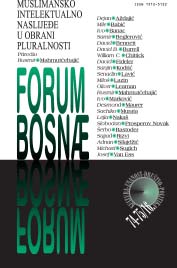
Cilj moje rasprave o temi političkih religija u Jugoslaviji i nakon nje, s dodatnim osvrtom na pojam kulta vođe i nacionalni utopizam, jeste razmotriti jednu zanemarenu mogućnost tumačenja Titovog režima i, osobito, preživljavanja njegovog kulta kako bi se izgradio sociološki model za različite izvore njegovog dugoročnog legitimiteta.
More...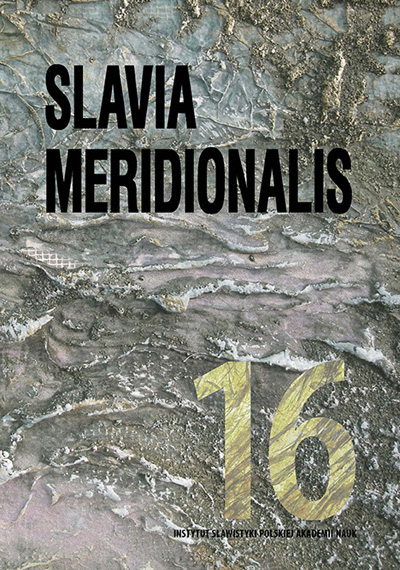
The article addresses the Vanga complex that has been developed since 1994 in a Bulgarian village called Rupite. Due to its unique spatial arrangement as well as the ambiguity of the religious practises engaged at the complex, it at the same time effortlessly serves as an Orthodox, an esoteric and a folk sanctuary. The fact that its creators were influenced by the Marxist and esoteric system established in the twentieth century by Lyudmila Zhivkova as well as spatial categories of the centre and axis mundi, resulted in the occult tenor of this place. Simultaneously, mystification used by the originators together with ambivalent approach of the Bulgarian Orthodox Church towards syncretic religious phenomena, enabled St. Petka Church – constituting the axis of the complex being discussed – to become an official Orthodox church. Furthermore, the Rupite complex can justifiably be interpreted as an institutionalisation of the cult of the local seer Vanga, dynamically developing in the south-west of Bulgaria. Binding psychic and healing spiritual gifts of Vanga with folk beliefs about St. Petka, made it possible to inscribe the seer into the paradigm of a Christian martyr and a prophetess. Moreover, it also allowed Vanga to enter the pantheon of saint healers, who are particularly popular in these areas.
More...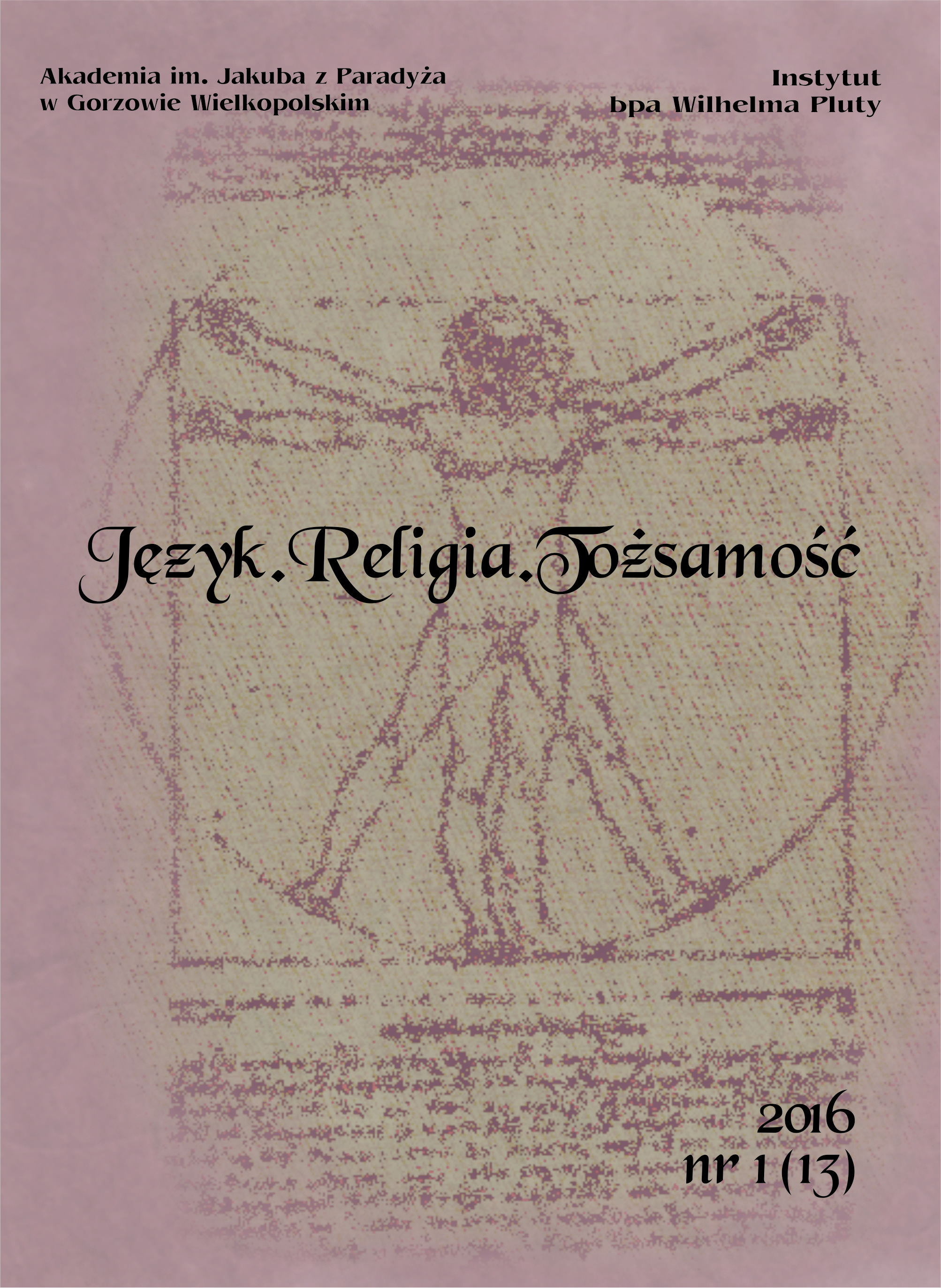
The article presents the results of literature research related to the issue of Oflag II CWoldenberg, which operated in 1940-1945. This article discusses the monographicpublications devoted to the above said camp. The whole has been supplemented withinformation about other publications, which raised issues of the camp itself as well asprisoners staying there during the Second World War in the Woldenberg camp. Thematerial is a continuation of an earlier publication titled 'Prisoners of Oflag II C in thepress releases', which was published in the conference proceedings volume titled 'Thecultural heritage of the border region', V. 4. ed. E. Skorupska-Raczynska, J. Rutkowskain Gorzow Wielkopolski, 2011.
More...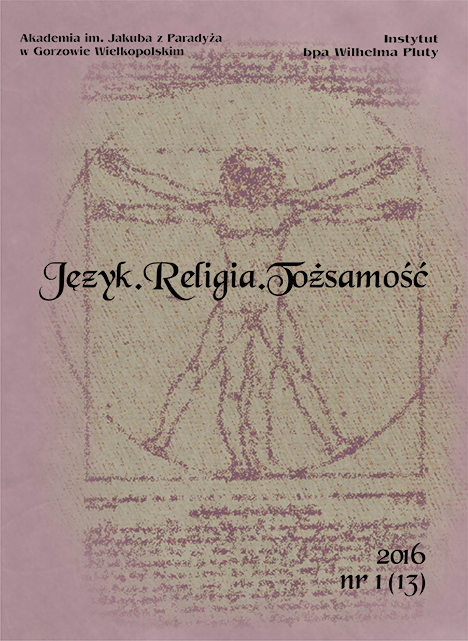
Realized from end of years 40. by state powers programme of secularization of society in first order aimed to throwing on the atheistic viewpoint the young generation. The assumption new ideology of the children's life and she ran the youth several tracks. It the new programmes of education were introduced was and teaching, new textbooks (particularly to history) it working was led was, to enlarge teachers' number belonging to communist party, parental committees, presenting teachers with schools were removed different, conflicting with communist ideology, opinions, at last also only teaching of religion. It it was unreeled was moreover the form of work after lessons and the Relationship of Polish Youth apart from school scouting, was communized, was extended, and the youth church organizations were liquidated also. The policy of limiting the subsidiaries of housing Church was supported the working these.
More...